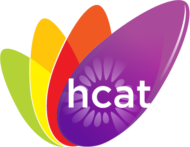Writing

Intent
Our aim is that Eastfield pupils will develop a love for writing whilst gaining the communication skills necessary to be successful learners and citizens. We recognise the importance of nurturing a culture where children take pride in their writing, can write clearly and accurately and adapt their language and style for a range of purposes and audiences. We want to inspire children to be confident in the art of speaking and listening whilst enabling them to effectively communicate.
We believe that children need to develop secure foundations in writing which follow a clear pathway of progression as they advance through the primary curriculum. We believe that a secure foundation of literacy skills is crucial to a high-quality education and that this will provide our children with the tools they need to participate fully as a member of society. We strive to equip pupils with the automaticity needed to write effectively across a variety of purposes and for a range of different audiences. Pupils discuss and refine their ideas through oral rehearsal and speaking and listening activities. Using accurate transcription and compositional skills, written pieces will be clear, fluent and engaging. Pupils will edit and improve their work, taking pride and care in producing high quality final drafts. Through the use of adventurous vocabulary, varied sentence structure, careful planning and imaginative flair, pupils’ writing will aim to engross and enthral the reader.
Implementation
In KS1 and EYFS we aim to target transcription to make the mechanics of writing an automatic process which in turn, unburdens working memory, allowing the children as they progress up the school to focus on complex compositional elements.
Our high-quality teaching of the Little Wandle phonics scheme is the driving force which allows children to acquire the vital building blocks of writing. Writing opportunities are built into the daily provision in EYFS, with pupils’ mark marking and writing. There is a focus on letter formation and phonetical knowledge. In addition, daily writing sessions are centered around high-quality texts which children have prior knowledge of and are familiar with.
Through a mixture of daily handwriting sessions, dictation exercises and oral rehearsal, foundational fluency in early writing is proritised throughout teaching and learning in EYFS and KS1.
In KS2, after children have mastered the foundations of writing and can use them with increasing automaticity, the focus shifts more towards the compositional elements. Pupils develop a strong awareness of the different purposes for which one might write and are taught, over time, to write for a range of different audiences. Pupils are taught how to adjust their writing for the four main purposes: to entertain, to inform, to persuade and express feelings. Our approach to writing is centered on producing quality not quantity where pupils learn the conventions of producing effective written communication between the reader and the writer.
Through effective modelling and reflection, pupils learn key writing behaviours that allow them to write independently. Pupils are given regular opportunities to write but we also understand that time, care and attention need to be given to oracy and the executive functions (planning, drafting and reviewing) required for writing.
Throughout the writing process, our teachers help children to make connections between background knowledge and the creation of new knowledge.
The Eastfield Writing Process:
- Read (as a writer) – High quality examples of the purpose of writing are shared and explored.
- Authorial intent – Identify features of the particular purpose/audience of writing (style, tone, tense, person, vocabulary etc).
- Model & Shared Writing – Teachers provide high quality modelled writing. This moves naturally into shared writing with opportunities for oral rehearsal.
- Drafting – Pupils begin to draft their own pieces of writing.
- Edit & Improve – Teacher feedback given at this stage. Peer critique and
self-assessment used. Pupils use blue pens to amend and improve their work.
- Final draft – Pupils produce their final drafts.
Spoken Language and Communication
Early Language
In the Early Years, children learn the fundamental principles of dialogue, including taking turns to speak; speaking at an appropriate volume and body language for active listening, including looking at who is talking to you and showing eye contact. The children begin to use talk in meaningful partnered talk, group work and class discussions. They build on their ability to articulate themselves in full sentences, using conjunctions to develop their opinions on their learning and the stories they read in class. By the end of reception, the children are able to offer explanations for why things might happen, making use of recently introduced vocabulary from across the curriculum with high quality modelling and support from adults in the classroom.
Oracy
Here at Eastfield, we believe that oracy is key to developing strong writing skills, as it helps pupils to articulate ideas, expand vocabulary, and structure thoughts clearly. Through purposeful and planned talk opportunities, children rehearse ideas, collaborate, and explore language, which enhances their ability to write coherently and effectively. Integrating oracy into writing lessons ensures pupils better understand tone, audience, and purpose, fostering confident, skilled writers.
Our intention is to prepare our children for later life, through weaving talk into the curriculum and embedding oracy in all aspects of the school culture. Speaking and listening opportunities have been deliberately and explicitly planned throughout the curriculum, from EYFS to year six. For each year group, the writing curriculum now includes specific oracy outcomes (e.g., poetry performance, news reports, persuasive speech, instructions etc) linked to the four purposes of writing. Through the use of self-critique, pupils reflect on their own oracy skills. In this way, our students refine and develop their speaking and listening skills as they move up through the school.
Further Information
-
Eastfield-Handwriting-Policy
download_for_offline
download_for_offlineEastfield-Handwriting-Policy
- EPS Writing Long Term Plan 2024-25 download_for_offline
download_for_offlineEPS Writing Long Term Plan 2024-25
- GPS-Whole-School-Progression-Map download_for_offline
download_for_offlineGPS-Whole-School-Progression-Map
- Handwriting Progression Map EYFS - Y4 download_for_offline
download_for_offlineHandwriting Progression Map EYFS - Y4
- Handwriting Progression Map Y5-Y6 download_for_offline
download_for_offlineHandwriting Progression Map Y5-Y6
- Spelling Policy download_for_offline
 ↑
↑
- EPS Writing Long Term Plan 2024-25 download_for_offline


